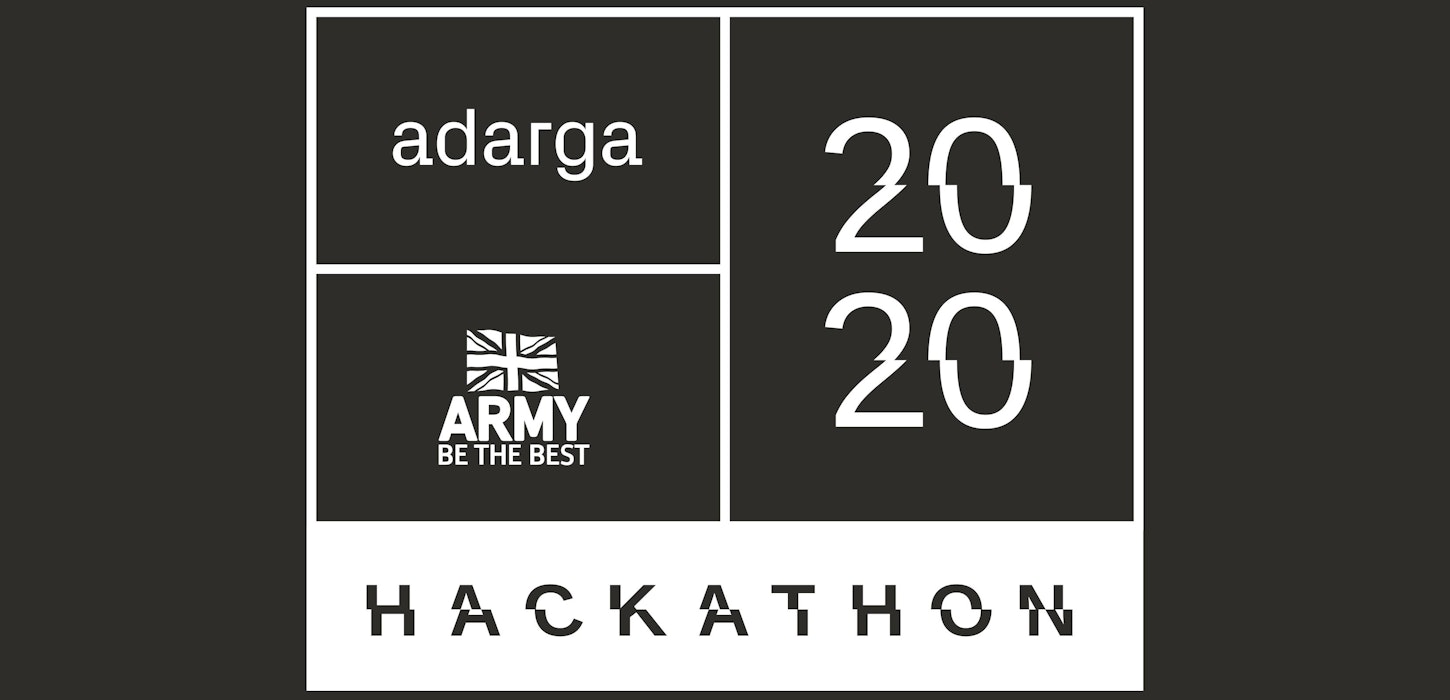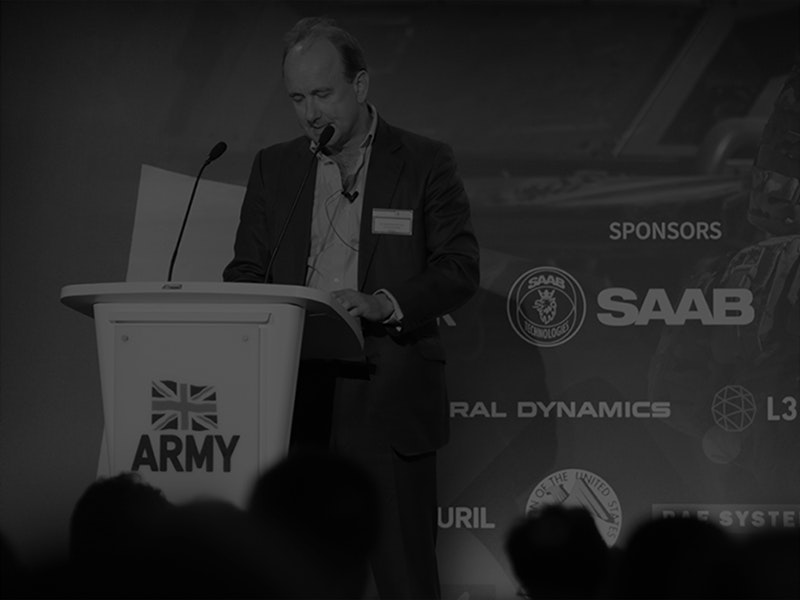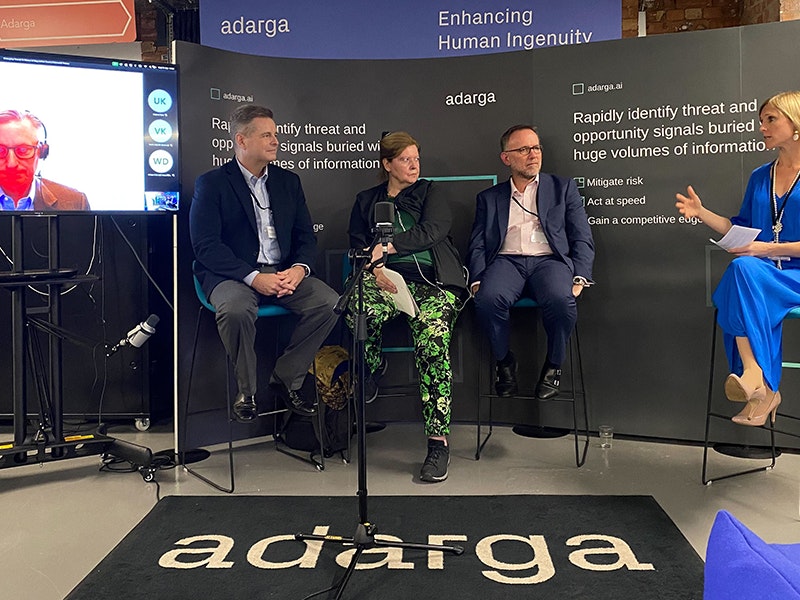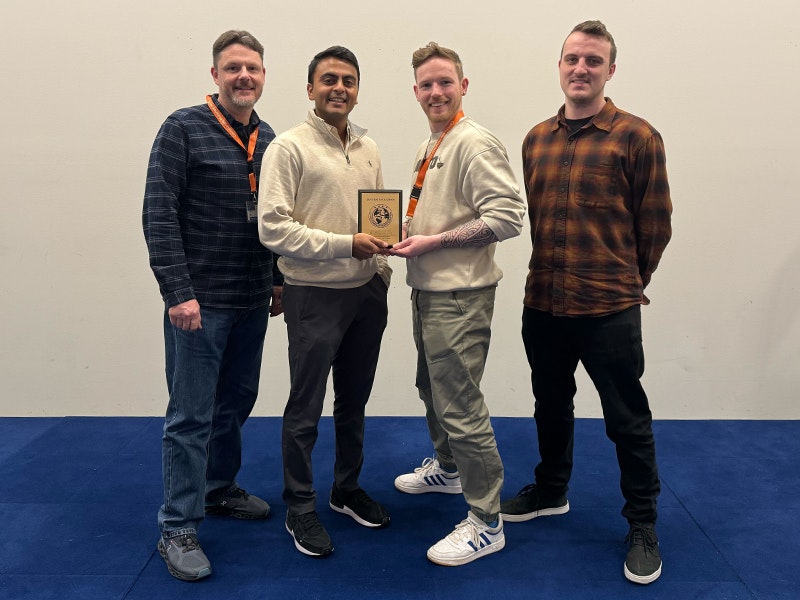
Adarga and British Army Hackathon 2020: a special event exploring new ways to solve the real-world challenge of ending illegal poaching
From 8 - 10 December, Adarga will participate in a Hackathon hosted by the 11th Infantry Brigade (11X) and 104th Logistics Support Brigade (104X) of the British Army. Facilitated by AWS, Premise and BMNT, the event is themed around the campaign against poaching of endangered species.
Six interdisciplinary teams of industry experts, engineers and data scientists from Adarga will work together with Subject Matter Experts (SMEs) from 11X and 104X of the British Army to tackle a designated question based on the British Army’s work to protect endangered species in Africa.
What is the Hackathon 2020?
As preparation Hackathon, Adarga SMEs, engineers and data scientists have had the opportunity to learn from 11X and 104X about their role within the British Army, and their part in supporting the counter-poaching campaign specifically.
11X is one of the British Army’s Adaptable Force Brigades, which is responsible for conducting the training of local rangers in counteracting poaching activities in a designated area. 104X is the Army’s theatre logistic enabling formation, delivering scalable logistic enabling force elements at readiness and prepared to provide a 1* HQ for any UK deployment, including 104X personnel as part of their deployment for counter-poaching missions. The familiarisation process in the run up to the Hackathon provided space to learn more about the activities 11X and 104X pursue.
Based on real-world military challenges that 11X and 104X face in their campaign to tackle poaching of endangered species, Adarga and the British Army drafted two sets of questions to be addressed as part of the 2-day long Hackathon. The first set comprises tasks that are directly related to Illegal Wildlife Trade (IWT) and are therefore more closely linked to the challenges 11X faces. These include presenting potential IWT routes, generating an annotated graph of poaching activity and providing a report of the species poached, together with the quantities and market value of their by-products.
The second set of tasks revolves around Theatre Entry Logistics and is thus more relevant to 104X. Tasks comprise delivering a capacity analysis of Points of Disembarkation, identifying key locations, businesses and logistic infrastructure in a country of interest and compiling an annotated map of known cyber-attacks on logistic infrastructure.
The interdisciplinary teams will have 48 hours to explore ways to solve their chosen task and present their approach to a military and industry panel who select the winning team. Presentations to the jury can range from an idea or a viable solution to a proof of concept.
Why is counter-poaching a priority for the British Army?
Poaching is an illicit trade that not only contributes to the decline of many endangered species but also destroys the livelihood of local government and communities who depend on income from tourism. It is further assumed that poaching activities may fund terrorism and other criminal activities. As an illicit trade that generates an estimated 17 billion pounds per year, poaching is extremely lucrative - accounting for the world’s fourth largest illegal trade after drugs, people and weapons - fuelled by an increasing demand. Some products made from endangered species claim to have scientifically unproven medicinal properties, such as rhino horn powder, while others are sought for their aesthetic qualities, including elephant tusks and tiger fur. How lucrative this trade really is, becomes apparent when looking at the prices on the black market: A rhino horn for instance is worth more than gold, at up to £50k per kilo, while a single pound of ivory can sell for £1.13k with one tusk weighing approximately £250.
Poaching activities have had a dramatic effect on wildlife and plunged many endangered species into an even more dire situation: worldwide, 30,000 elephants are killed for their tusks every year, and whilst poaching of rhinos has decreased in the last few years, 900 are still poached every year. Some species are on the verge of becoming extinct, such as the tiger of which only 4000 are left in the wild. Moreover, poaching of certain species can affect other species in the ecosystem, such as vultures who often end up dying from eating the remains of elephants are often poisoned after being poached.
Given the many impacts poaching activities have on wildlife and local communities, the UK government has decided to get involved in stopping poaching across Africa with an investment of more than £900k. In 2017, for example, a counter-poaching task force from 11X trained more than 120 rangers to safeguard endangered species in Malawi, funded by the Department for Environment, Food and Rural Affairs (DEFRA). Working closely with their local partner – African Parks, who look after the national parks in Malawi – the task force trained rangers in their capability to protect park animals from poaching. Training included battleground first aid, map reading, tracking skills, operation planning and night vision. During their four-month deployment to Malawi, the task force was able to stop 21 poachers, detected and confiscated 350 snares and thus saved many endangered animals from falling victim to this illicit trade. Drawing from their experience in counter poaching training in Malawi, but also Gabon and South Africa, the British Army plans to expand its counter poaching ranger program to Zambia this coming year.
What challenges does the British Army face in their efforts to tackle poaching of endangered species in Africa?
To successfully deploy a counter-poaching task force, both 104X and 11X require a solid understanding of their surroundings, the actors involved and the challenges they may face. To provide a 1* HQ for the deployment of the task force, for example, 104X needs to obtain a detailed understanding of the overall logistic infrastructure, key locations of businesses, operators, points of disembarkation, waterways as well as any risks of cyber-attacks on the infrastructure or environmental risks that may affect the site of deployment. 11X, operating as the task force on the grounds and providing the training for the local park rangers, need a good grasp of the extent of poaching in the designated area, the concerned species, state and non-state actors involved, common strategies and weapons employed by poachers, community sentiment toward the wildlife in the park, the motivation to poach, potential illegal wildlife trade routes as well as hotspots and market-value for trading off-products of poached animals.
To obtain such a comprehensive understanding of the terrain, multiple sources need to be considered. That includes information accessible exclusively to the British Army, such as reports from previous and current counter-poaching deployments within the wider area of interest. But publicly available information is equally important to obtain a detailed picture of the topic and location in question. That may comprise satellite data, geolocations of organisations and main points of infrastructure, publications from research institutions and open databases about illegal wildlife trade worldwide and within a specific area, government regulations and laws with respect to poaching and illegal wildlife trade in the country of interest, as well as newspaper articles about the general geopolitical situation of a country, developments surrounding illegal wildlife trade and high-profile seizures of poached animal off-products.
How Adarga will use its expertise to help solve the real-world questions that the British Army needs to address to tackle poaching of endangered species?
The above-described assortment of data provides the basis for understanding and eventual decision-making. However, collecting, analysing and deducing from a melange of data is non-trivial - data comes in structured and unstructured form, from a variety of sources, in multiple languages and in differing formats. And this is where Adarga’s stronghold lies. Here at Adarga, we specialise in powerful AI analytics technology to support clients in compiling and analysing unstructured, structured and disparate information from text to discover insights that drive faster, better decisions and anticipate emerging risks. To deal with the complexity and diversity of the data that organisations need to enhance their decision-making process, Adarga harnesses the power of natural language processing and machine learning and brings these advances to clients with our products adarga_engine™ and adarga_bench™.
During the Hackathon, Adarga’s engineers, data scientists and developers will bring their knowledge of dealing with complex data to their designated task. Through the collaborative efforts of Adarga tech experts and British Army SMEs within each participating team, the real-world challenges that 11X and 104X face in their campaign to tackle poaching of endangered species in Africa will be addressed by bringing a diverse skillset and expertise to the table.
Conclusion
The Hackathon provides an exceptional opportunity to work on real-world challenges in complex, present-day, operational environments that the British Army is confronted with in their efforts to stop the poaching of endangered species in Africa. By working in interdisciplinary teams of Adarga specialists and British Army SMEs, the tasks will be solved in a collaborative approach leading to viable, innovative solutions that provide real benefit to the counter-poaching task force on the ground.
The 2020 Hackathon is a closed event, but we will be publishing a follow-up article next month reporting back on the outcomes of the Hackathon. Follow us on LinkedIn to find out more.









